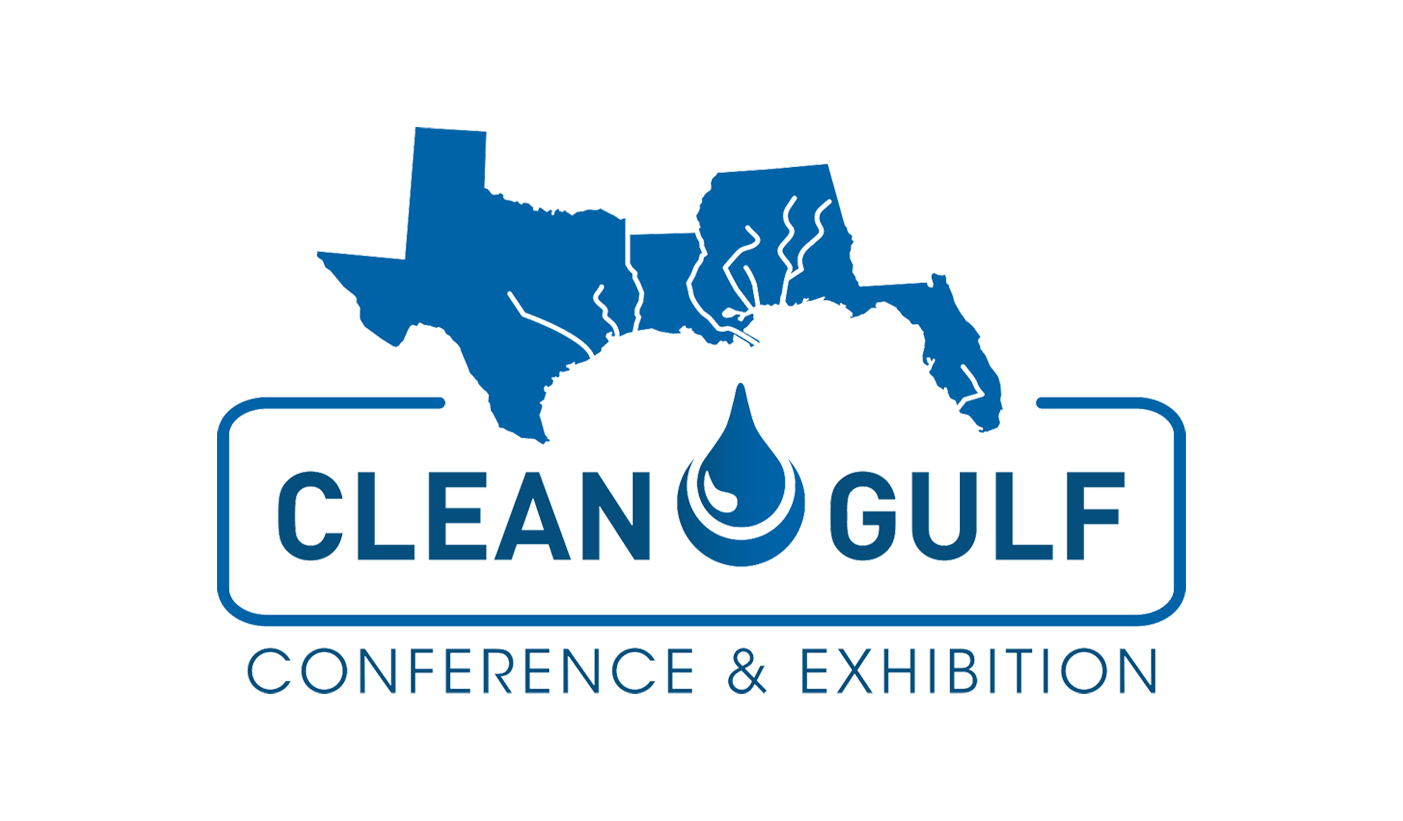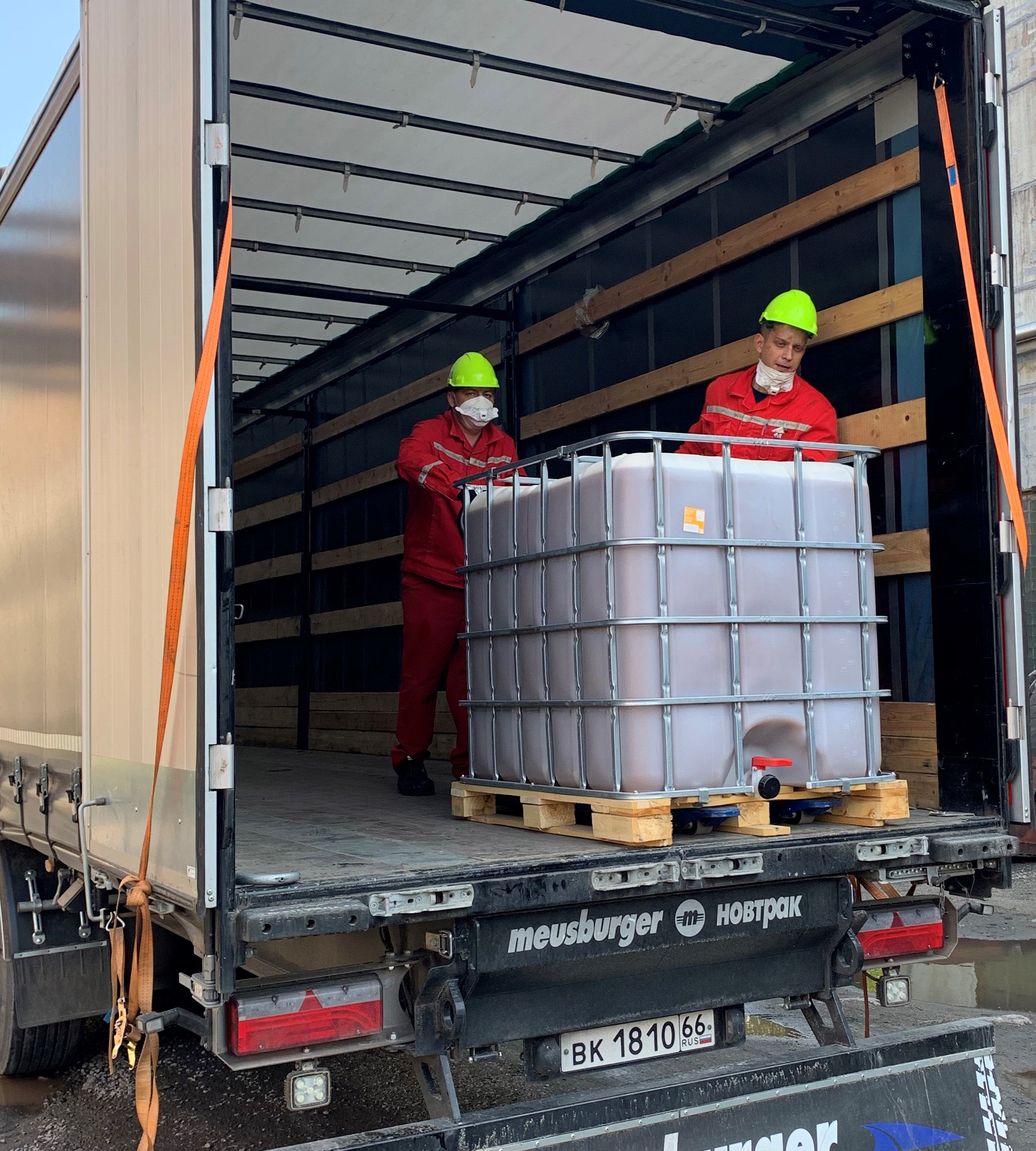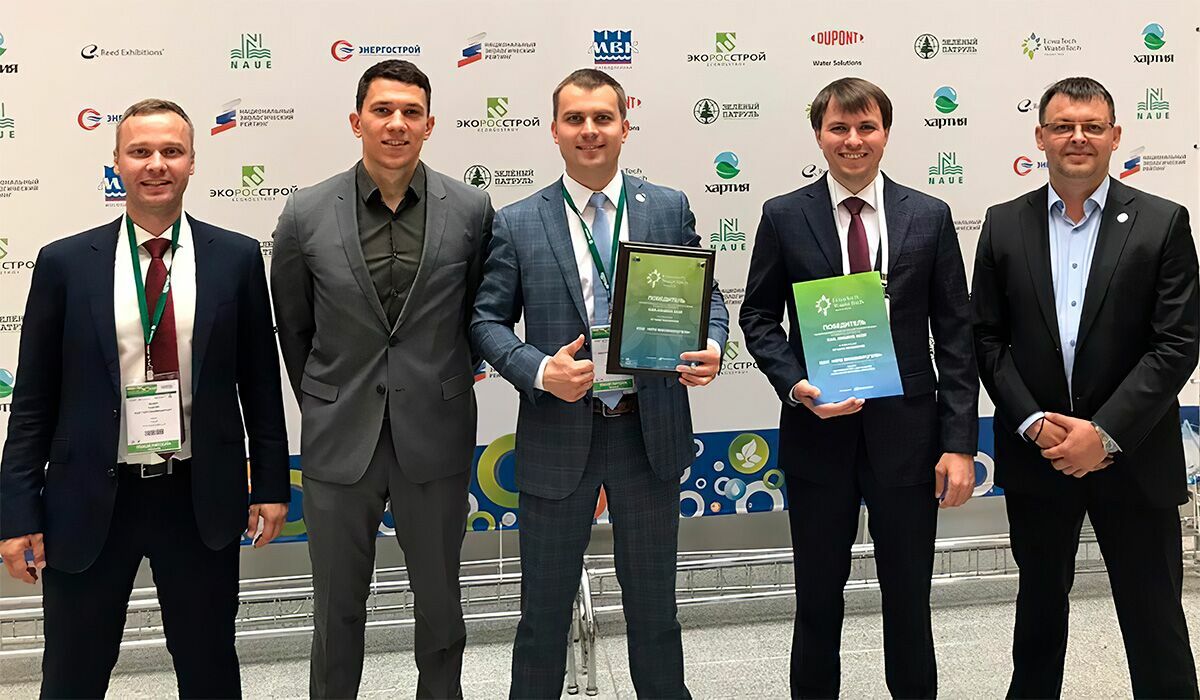To utilizers: what the state environmental expertise is, and how to pass it
In order to obtain or reissue a license, disposers must have a positive conclusion from the state environmental expertise. We look at which authorities to apply for a state environmental expert review, and what awaits a company that has failed to obtain a positive conclusion or has not undergone a state expert review at all.
What is the state environmental expertise
The state environmental expertise (SEE) checks whether the activity will not harm the environment. If a company plans to work with waste, it needs to obtain a license. In some cases, this requires a positive opinion from the SEE. To obtain it, it is necessary to send the project documentation for the planned activities to the Federal Service for Supervision of Environmental Management, and the experts will check it for compliance with the environmental requirements of the legislation of the Russian Federation.
As a result, the company will receive a positive or negative conclusion of state expertise. With a positive conclusion, you can apply for a license. If the conclusion is negative, it is necessary to take into account the comments of the commission and submit documents for a second state expert review.
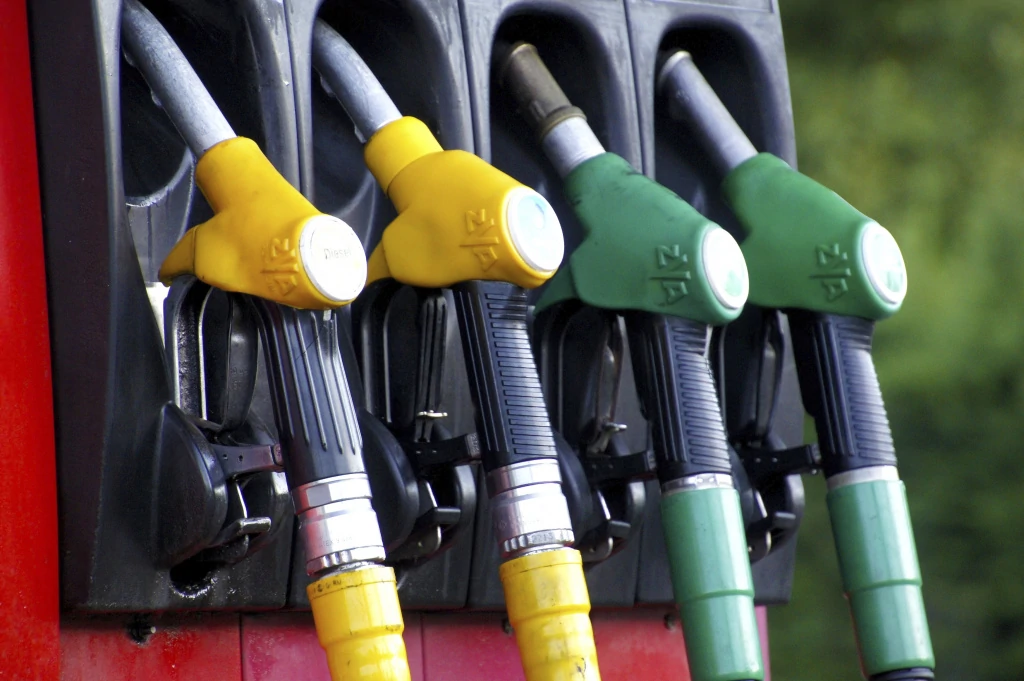
Apart from waste management, SEE is also needed for other types of activities. For example, to build a filling station in a water protection zone
When do utilizers need SEE
A positive opinion of the State Expert Review must be in hand before using new technology, selling equipment, or beginning the capital construction of facilities. But even if the company has already started operations, obtaining a positive conclusion of the state expert review is still needed, otherwise you can get a ban on the implementation of the facility, a resolution to suspend operations or a fine from the Federal Service for Supervision of Natural Resources.
To obtain a license
According to the Federal Law "About ecological expertise", a positive conclusion of the State expertise is one of the conditions for getting a license for certain activities to manage I-V class waste.
For the construction of an object where waste will be placed or neutralized
It's impossible to construct, reconstruct or decommission a landfill, tailing dumps, rock dumps, etc. without a positive opinion from the SEE.
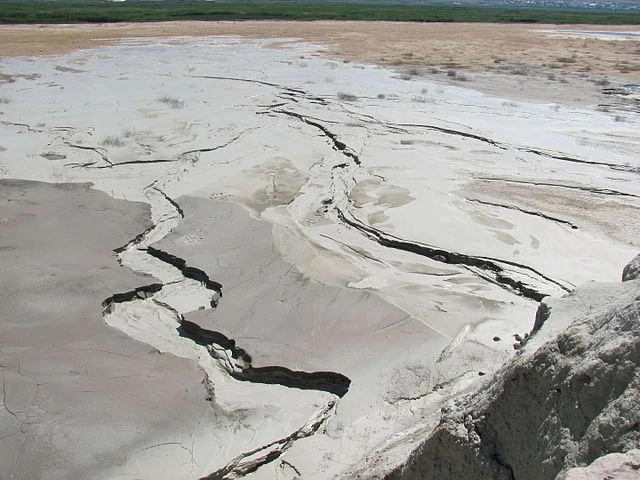
The tailings dump of the Ararat gold extraction plant. Wastes resulting from gold extraction with cyanide are stored here — so called "tails"
To re-cultivate the disturbed lands
Recultivation is filling the worked-out pits with wastes of III-V classes of danger: dewatered sewage sludge, slag, construction wastes etc. Of the two types of reclamation - waste disposal and waste use - state expertise is required only for the former.
For imports and sales of new equipment
Without a positive SEE opinion, it will be difficult to sell new equipment, since it will be illegal to use it. What applies to new equipment and technology will be discussed below.
For neutralization of waste with new equipment and technology
In this case you also need state expertise for new substances released during the use of technology or equipment.
What kind of equipment and technology is considered new?
For the Ministry of Natural Resources, this is equipment and technology that have been tested and will be used in Russia for the first time. But the Federal Service for Supervision of Environmental Management requires a state environmental impact assessment report even for technologies that are already in use in Russia and are included in the Best Available Technologies List.
But if a company is not going to dispose of waste using the new technology, it will still need a positive opinion from the SEE in order to obtain a license. If the company is doing business, but does not have a positive conclusion, the Federal Service for Supervision of Environmental Management may issue an order to carry out an expertise, suspend activities or impose a fine (part 1, article 8.4 of the Code of the Russian Federation).
How SEE takes place
Who shall file the application and where
An individual entrepreneur, a legal or natural person or their authorized representatives may submit an application.
The objects connected with waste management require SEE at the federal level, therefore the documents shall be submitted in the personal office of the user of natural resources.
What documents are needed
-
Application for the service of organizing and conducting a federal state environmental impact assessment. The form is available in the list of regulations on the website of the Federal Service for Supervision of Environmental Management.
-
Positive opinion of the previous expert evaluation, if any, or approval documents of the executive agencies of the state and local authorities: Rosnedra, Federal Agency for Fishery etc.
-
Conclusion of federal executive authorities for the facility.
-
Conclusion of public environmental impact assessment, if any.
-
Materials from public discussions on the property.
How do public discussions take place?
A company sends an application to have a notice of the discussions published on the website of the territorial body of the Federal Service for Supervision of Environmental Management and the executive authority of its constituent entity of the Russian Federation in the field of environmental protection. It is important to do this in advance, so that the notice appears on the websites no later than three days before the discussions begin. In addition, the company may post the notice on its website and in the media.
What to write in the notice:
— Where participants in the discussions can view the EIA materials and the draft terms of reference or the object of the SEE;
— Where they can send their comments and suggestions;
— Where and when the public discussion will take place.
The collection of comments and suggestions on the Terms of Reference lasts at least 10 calendar days, on EIA materials - at least 30. Discussions can be held in person, in absentia and via video link.
As a result of discussions, the company receives the minutes of public discussion, participant registration lists, questionnaires, log of comments and consent to process personal data.
Timeline
SER begins no later than 15 days after documents are submitted and takes no longer than two months. It can last three months if the applicant requests a one-month extension of the state environmental expertise.
When the commission approves the result of the expertise, it sends it to the applicant within five days.
Result
If the conclusion is positive, the applicant can legally apply the new technology and techniques. If it is negative, the applicant can challenge it in court or take into account the comments, correct the documentation and send it again.
When a repeat SEE is needed:
-
The applicant has received a negative SEE opinion.
-
The deadline for a positive expert review report has expired. It varies depending on the object, but does not exceed five years.
-
The applicant has changed the project documentation after receiving a positive opinion of the State Expert Review Board.
-
The applicant implemented an object with deviations from the documentation with a positive conclusion of SEE.
Responsibility of the applicant for SEE
If the company has not received a positive SEE statement or has not been through a SEE at all, during an inspection by the Federal Service for Supervision of Environmental Management its activities may be suspended and a fine may be imposed, or the company may have problems re-issuing a license. Penalty for violation of legislation on state ecological expertise for legal entities is from 100,000 to 250,000 rubles, for officials - from 10,000 to 20,000 rubles.
Activity without a positive SEE report
Penalty
The organization dealt with oil and gas extraction wastes: drill cuttings, wastewater, spent drilling mud, though it did not have a positive conclusion of the state environmental expertise of the technology of processing this type of waste.
The Federal Service for Supervision of Environmental Management issued a fine of 50,000 rubles.
Refusal to reissue a license
The organization turned to the Federal Service for Supervision of Environmental Management to re-issue the license for waste collection, neutralization and disposal - another class of hazard had to be added.
The Federal Service for Supervision of Environmental Management began an inspection and found that the organization was using a waste sorting facility that did not comply with the design documentation that had received a positive opinion. In addition, the term of the SEE conclusion had expired. As a result, the organization refused to re-issue the license.
Activity with deviations from the project documentation, which was approved by the SEA
Penalty
The organization exported and neutralized drilling waste within the water protection zone. The Federal Service for Supervision of Environmental Management found deviations from the design solutions which had received a positive SEE opinion.
As a result, the Federal Service for Supervision of Environmental Management imposed a fine of 50,000 rubles.
Prescription
The organization received a positive conclusion for activities in inland sea waters. The materials of the SEE referred to the drainage system from the territory of the industrial sites, but in fact the facilities did not work.
The Federal Service for Supervision of Environmental Management issued an order to eliminate the violations.
Conclusion
State environmental expertise is an important procedure for companies that store, neutralize and dispose of waste. Without it, it is impossible to obtain or re-issue a license, introduce new technology, use new equipment or build a capital structure for disposal facilities.
If a company carries out its activities without a positive SER opinion at its own risk, it runs the risk of being fined by the Federal Service for Supervision of Environmental Management, ordered to eliminate violations, or refused to reissue a license.
